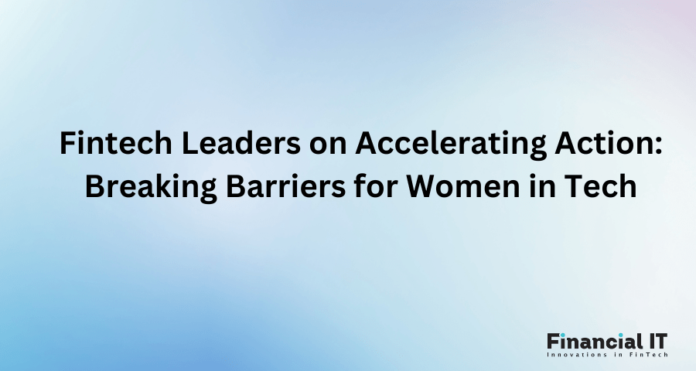Celebrating Progress and Pushing for Change: Voices on Gender Equality
International Women’s Day serves as a powerful reminder of the ongoing journey toward gender equality. This year’s theme resonates deeply with many leaders in the industry, emphasizing that while progress in Diversity, Equity, and Inclusion (DE&I) is evident, it remains insufficient and slow. Helen Owen, Vice President of Marketing at BR-DGE, articulates this sentiment clearly: “Real change will require everyone taking positive and continuous action so that inclusion becomes part of our individual, company, industry, and societal DNA.”
The Call for Action
Owen believes that many individuals are eager to contribute to meaningful change but often feel lost about where to begin. She advocates for collective efforts within the industry to provide practical steps and tangible actions. This includes addressing critical issues such as closing the gender pay gap, raising awareness of women’s health in the workplace, and creating psychologically safe environments. Owen emphasizes the importance of integrating actionable steps into every discussion about DE&I. Simple initiatives, like sharing case studies of successful programs or promoting memberships in organizations like the European Women Payments Network (EWPN), can foster a culture of inclusion.
The Role of Allies
A crucial aspect of creating an inclusive environment is the involvement of diverse voices. Owen stresses that discussions about inclusion should not be limited to women alone; allies of all genders must actively participate. This collaborative approach can amplify efforts to create equitable workplaces, ensuring that everyone feels empowered to contribute to the cause.
The Reality of Gender Bias
Ryta Zasiekina, founder of CONCRYT, echoes the need for systemic change in her perspective on gender equality in business. She asserts that gender should not dictate opportunities, yet acknowledges the persistent barriers women face due to systemic biases. Zasiekina highlights the importance of self-advocacy for women, urging them to negotiate fair compensation and seek advancement without the added burden of gender-based obstacles.
She emphasizes that while individual action is vital, companies must also take responsibility for fostering equitable environments. “Progress requires both individual action and systemic reform,” she states, advocating for workplaces that prioritize talent and effort over outdated biases.
The Business Case for Inclusion
Lynda Clarke, Chief Operating Officer at Tribe Payments, reinforces the notion that gender equality is not merely a women’s issue but a business imperative. She points out that diverse organizations consistently outperform their competitors, making a strong case for inclusion as a core business strategy. Clarke believes that true inclusion means ensuring everyone has a voice, which leads to smarter decision-making and innovation.
She argues that investing in inclusion should be a long-term commitment rather than a fleeting trend. “Inclusion isn’t just something we do on the side when we can afford it – it’s a core driver of success,” she asserts, emphasizing the broader benefits that come from a diverse workforce.
Urgency for Change
Dani Palmer, Chief Marketing Officer at Loqbox, captures the urgency of the moment, stating, “Progress isn’t passive—it’s a choice we make every day.” She calls for immediate action to challenge biases and push for systemic change, warning that the cost of inaction is significant. Palmer advocates for a mindset that refuses to accept delays in achieving gender equality, urging individuals and organizations alike to demand change now rather than later.
Reflecting on Progress
Teresa Cameron, Finance Director at Clear Junction, reflects on the progress made over the past two decades, noting significant shifts in gender roles and workplace dynamics. She highlights the evolving family structures and the impact of technology on work-life balance, which have opened doors for women to pursue their career aspirations. However, Cameron acknowledges that there is still much work to be done to achieve true equality.
She emphasizes the importance of championing one another and inspiring future generations, particularly for young women entering fields like STEM. Her commitment to supporting her daughter’s ambitions illustrates the personal stakes involved in the fight for gender parity.
The Importance of Mentorship
Nina Papazyan, Head of Product & Banking Integration at Clear Junction, shares her own experiences navigating the workplace, particularly after maternity leave. She emphasizes the critical role of mentorship and allyship in overcoming barriers. While she acknowledges the support she received from male mentors, Papazyan insists that allyship must be accompanied by concrete actions, such as equal pay and flexible policies that empower women.
She advocates for a rethinking of workplace structures to ensure that key life stages, like motherhood, are viewed as opportunities rather than obstacles. By fostering inclusive environments, organizations can enable everyone to thrive.
The voices of these leaders highlight the multifaceted nature of the journey toward gender equality. Their insights reveal a shared commitment to not only celebrating progress but also pushing for systemic change that benefits everyone. As the conversation around DE&I continues to evolve, the call for actionable steps and inclusive practices remains more relevant than ever.

